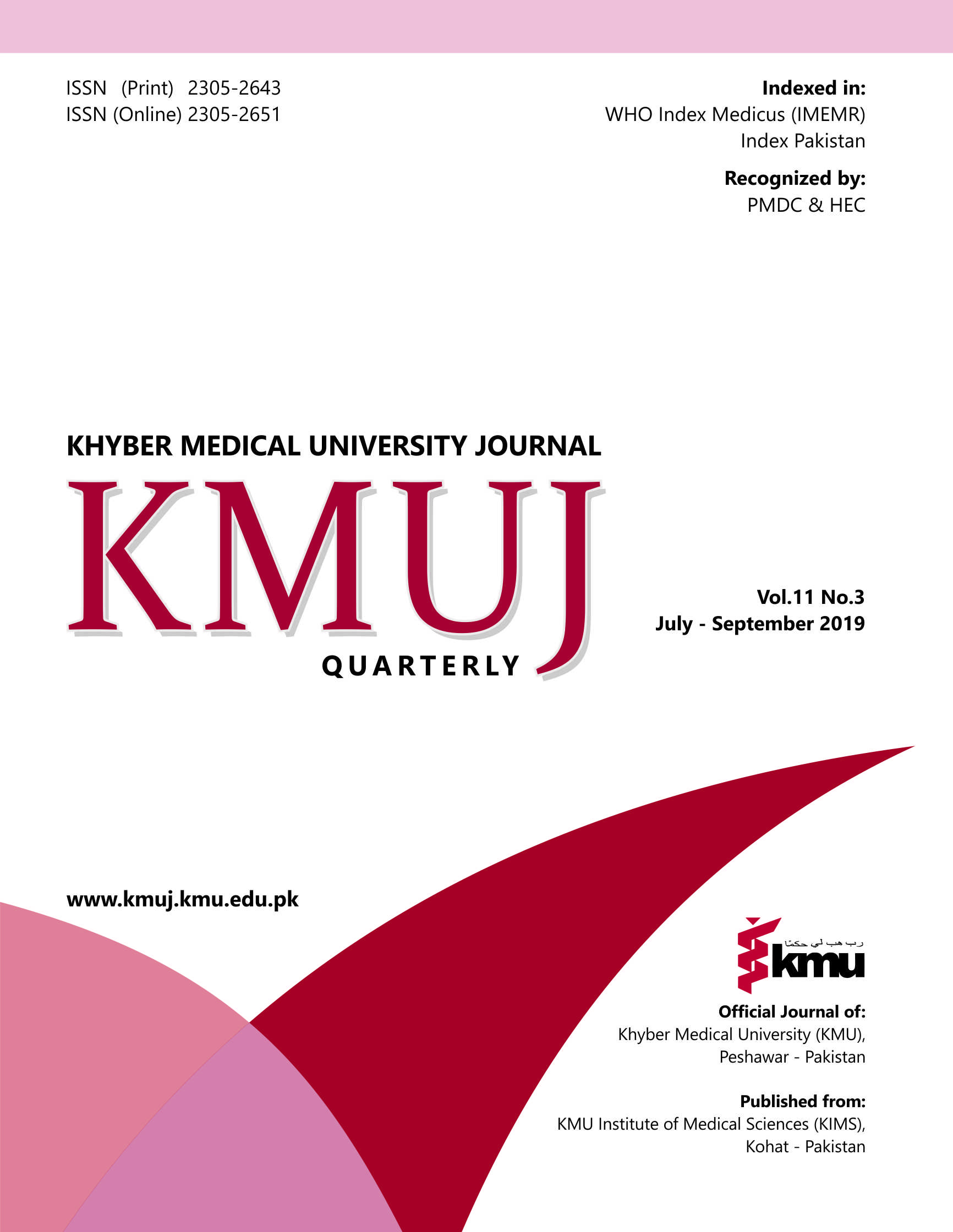ROLE OF INSTITUTIONS IN FOSTERING RESEARCH INTEGRITY AND COMBATING RESEARCH MISCONDUCT
Main Article Content
Abstract
Efforts have been taken by various institutions to deal with research misconduct. Higher Education Commission (HEC) of Pakistan has blacklisted few researchers/faculty members who were involved in plagiarism. However; research integrity is not limited to handling research frauds, fabrication, falsification and plagiarism and punishing the culprits. Research integrity needs the development and implementation of policies and procedures for responsible conduct of research in accordance with professional standards. Institutions must create systems, which can ensure adherence to the ethical norms of research, use of robust study designs, strong data management, honest and accurate dissemination of study results and mechanisms to deal with allegations of research misconduct through a transparent process.
Article Details
Work published in KMUJ is licensed under a
Creative Commons Attribution 4.0 License
Authors are permitted and encouraged to post their work online (e.g., in institutional repositories or on their website) prior to and during the submission process, as it can lead to productive exchanges, as well as earlier and greater citation of published work.
(e.g., in institutional repositories or on their website) prior to and during the submission process, as it can lead to productive exchanges, as well as earlier and greater citation of published work.
References
Makri A. Pakistan and Egypt had highest rises in research output in 2018. Nature 2018 Dec;21. Correction 27 December 2018. DOI: 10.1038/d41586-018-07841-9. Available from URL: https://www.nature.com/articles/d41586-018-07841-9
Bercovitz J, Feldman M. Entpreprenerial universities and technology transfer: A conceptual framework for understanding knowledge-based economic development. J Technol Transf 2006;31(1):175-88.
National Academies of Sciences, Engineering, and Medicine. 2017. Fostering Integrity in Research. Washington, DC: The National Academies Press. DOI: 10.17226/21896
OSTP (Office of Science and Technology Policy, Executive Office of the President). Federal policy on research misconduct. Federal Register. 2000;65:76260–76264.
Integrity and Misconduct in Research: Report of the Commission on Research Integrity (Commission by U.S. Congress No. U.S. GOVERNMENT PRINTING OFFICE: 1996-746-425) U.S. Department of Health and Human Services, Public Health Service; Washington, D.C: 1995
Ana J, Koehlmoos T, Smith R, Yan LL. Research misconduct in low-and middle-income countries. PLoS Medicine. 2013;10(3):e1001315. DOI: 10.1371/journal.pmed.1001315
The Retraction Watch Leaderboard. [Cited on: July 30, 2019]. Available from URL: https://retractionwatch.com/the-retraction-watch-leaderboard/
Elsevier retracting 16 papers for faked peer review. [Cited on: July 30, 2019]. Available from URL: http://retractionwatch.com/2014/12/19/elsevier-retracting-16-papers-faked-peer-review/
Health Diary. Medical training dissertations are up for sale in Peshawar. April 28, 2017. [Cited on: July 30, 2019]. Available from URL: https://www.thenews.com.pk/print/201268-Medical-training-dissertations-are-up-for-sale-in-Peshawar
Higher Education Commission, Pakistan. Blacklisted researchers/faculty members. [Cited on: July 30, 2019]. Available from URL: https://www.hec.gov.pk/english/services/faculty/Plagiarism/Pages/Blacklisted-Faculty-Members.aspx
Research integrity is much more than misconduct. Nature 2019 Jun;570(7759):5. DOI: 10.1038/d41586-019-01727-0.
Martinson BC, Thrush CR, Lauren Crain A. Development and validation of the Survey of Organizational Research Climate (SORC). Sci Eng Ethics 2013;19(3):813–34. DOI:10.1007/s11948-012-9410-7
Higher Education Commission of Pakistan. Model structure of ORIC. [Cited on: July 30, 2019]. Available from URL: https://www.hec.gov.pk/english/services/universities/ORICs/Pages/Model-Structure-of-ORIC.aspx
